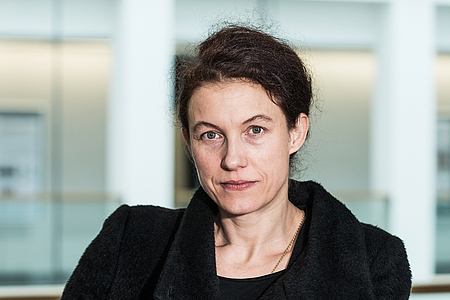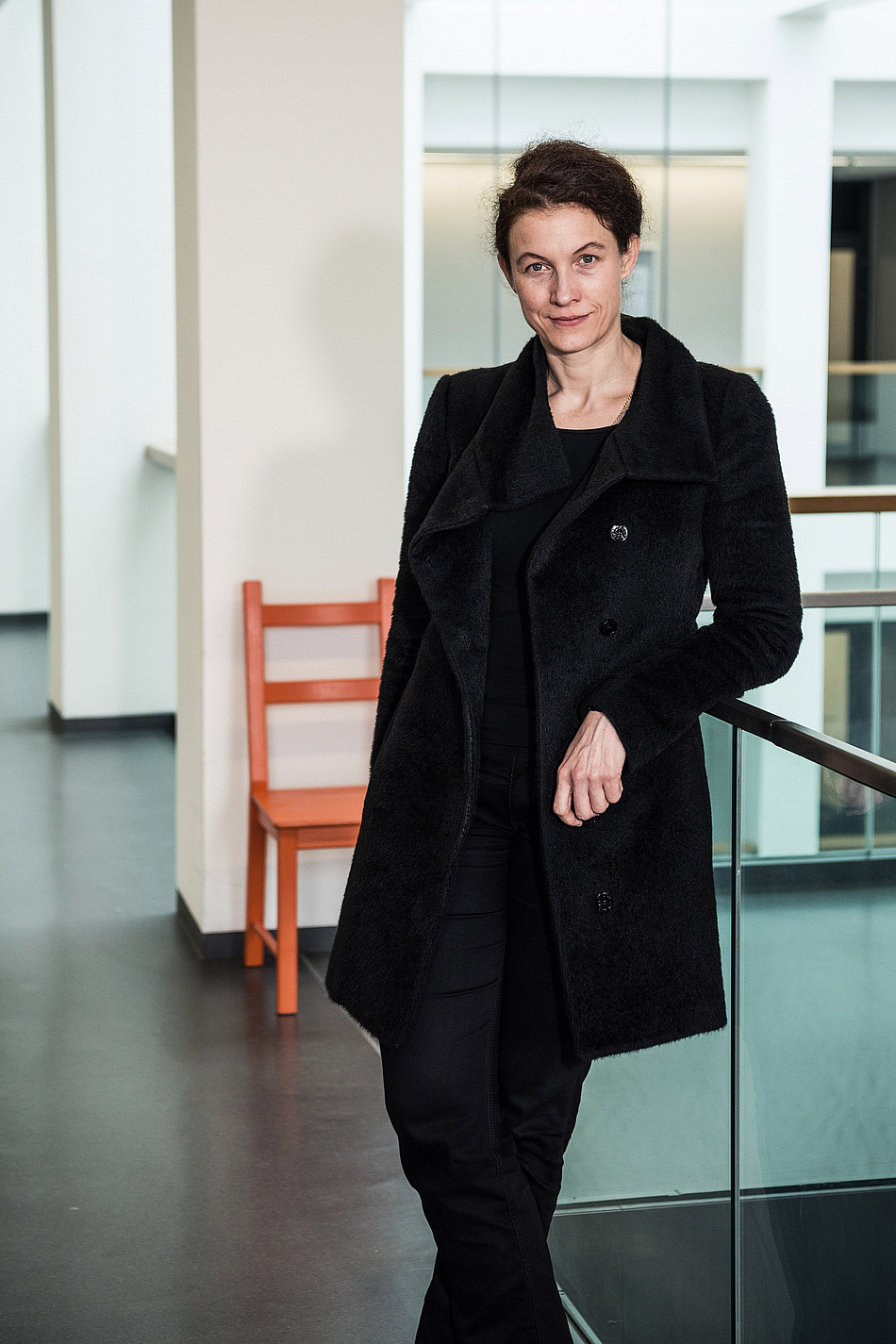Making the unspeakable communicable
As Senior Physician at the Clinic for Psychiatry and Psychotherapy of the Charité (PUK SHK), Christiane Montag observes time and again in everyday clinical practice that patients with psychoses find it difficult to find specific psychotherapy adapted to their needs. In treating psychoses, there are a few special features which can affect the effectiveness of the therapy: “Some people with psychoses find it difficult to perceive their inner experience, such as their feelings, to distinguish them and to express them in words. In general, this concerns their ability to think about mental states and on this basis to interpret and give meaning to their own emotional world or that of other people, the so-called ability to mentalize,” explains Christiane Montag. Affected people therefore often suspect malicious intentions behind the behavior of their fellow human beings. This therefore raises the question as to whether these patients’ capacity for symbolizing and mentalization is even sufficiently developed to be able to work with the usual interpretations in psychodynamic therapy.
She herself works with psychodynamic psychotherapy, which means that the therapist starts from the assumption that there are unconscious conflicts that cause external symptoms. The aim is to make these conflicts obvious through re-experiencing them in the therapeutic relationship, thus making it possible to work through them. However, according to Christiane Montag there are no studies that examine the effectiveness of psychodynamic psychotherapies in people with psychoses. This awakened her ambition to research the effect of psychotherapies herself.
For psychosis treatment, the psychodynamic treatment method must be modified. Her working group, together with scientists from the International Psychoanalytic University in Berlin and the Academy for Psychoanalysis and Psychotherapy in Munich, has therefore adapted the psychodynamic technique for psychosis therapy and published it in a manual. In the initial phase of the treatment it is important to create the possibility of an implicit, model-like new experience of a relationship which does not endanger the identity of the affected person. On this basis, it is then possible to work on the ability to mentalize, among other things.
In one study, the effectiveness of this procedure in patients with schizophrenia is currently being tested. In addition to efficacy and safety, the research group is also investigating specific therapeutic interventions and their effects on the outcome of psychotherapy. At the same time, it deals with the connection between psychodynamics and neurobiological processes. To do this, the researchers carry out functional magnetic resonance imaging both before and after a therapeutic intervention while the patients solve tasks relating to their mentalization ability. A check is carried out to see whether in the course of the therapy, as hoped, there is an approximate alignment with the mentalization ability of mentally healthy people. “Psychotherapy research is lengthy, and the study investigations and process analyses are very complex,” says Christiane Montag. The evaluations of the study are currently in progress and the last examinations on patients should be completed in two years.
The work on the study, particularly in its initial phase, was made possible by the funding in the BIH Clinical Fellowship Program of Stiftung Charité. Besides the financial aspects, the funding is above all “an expression of great appreciation for the clinical work” for Christiane Montag and her team, as she explains.

Funding program
BIH Clinical Fellows
Funding period
2015 – 2019
Project title
Psychodynamic psychotherapy and mentalization in patients with schizophrenia – a randomized effectiveness study
Research areas
Psychiatry and psychotherapy
Institution
Psychiatric University Clinic in St. Hedwig Hospital, Charité – Universitätsmedizin Berlin, Germany
Since 2014
Senior Physician, Psychiatric University Clinic of the Charité – Universitätsmedizin in St. Hedwig Hospital
2016
Venia legendi: "The Importance of Mentalization Ability and Empathic Experience for the Manifestation and Treatment of Schizophrenic Diseases".
1990 – 1998
Medical degree at the Humboldt-Universität zu Berlin and at the University of Bristol, Germany and UK
She regards her work as a unique interface between the clinic, neuroscientific research and the humanities. In addition, she finds the personal relationship with her patients a very enriching experience: “Without developing a relationship and a bond, you can’t be successful in psychiatry. For me as a therapist, it’s something very rewarding and inspiring when it works. To enter the inner world of another person can be fascinating and can help you free yourself from your restrictive mindset.” Such contact with patients who have unusual lifestyles has also affected her personal attitude to life: “I believe there has been a great openness – for the unusual and not norm-compliant”, explains Christiane Montag. The line between normal and pathological is ultimately strongly influenced by social values. So as long as someone “can carry out meaningful activities in keeping with their own goals,” then she, as a psychiatrist, sees no need to intervene.
The psychiatrist, however, finds that the public perception of psychiatric research topics remains inappropriate. Especially diseases from the so-called "schizophrenia spectrum" are still strongly stigmatized and are clearly more shamefaced than, for example, depressions. According to Christiane Montag, the fear of coercive measures also leads those affected to feel greater shyness to seek professional help. While for example famous people talk about their experiences with depression publicly, the subjective experience of a psychosis or the recovery of it is usually kept secret. A realistic public debate about the individualized treatment of psychotic diseases in accordance with guidelines – and also the necessary means – has so far largely failed to take place.
May 2017 / TO and MM
